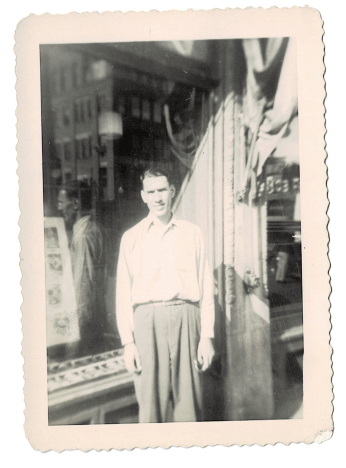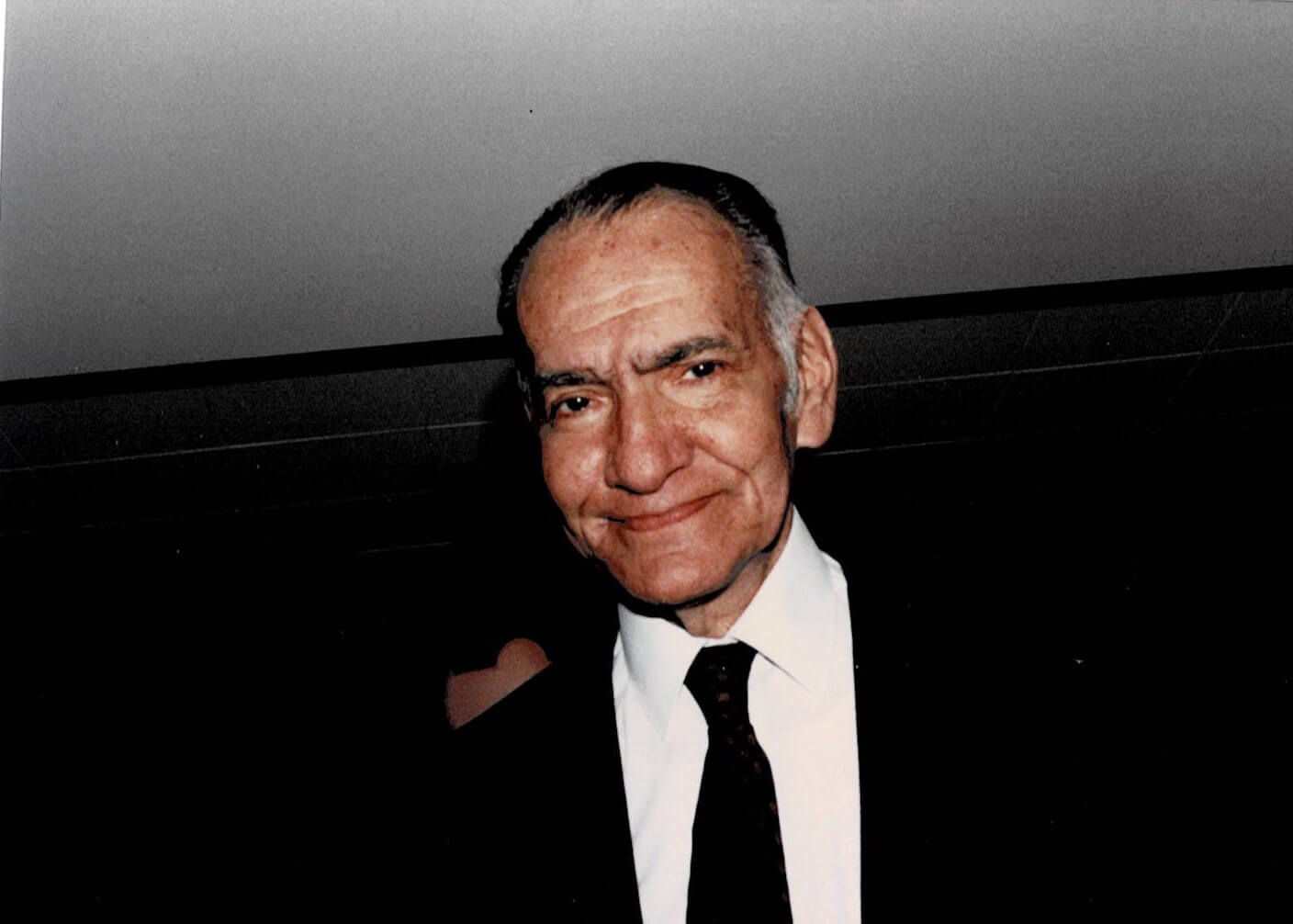Harry “Buddo” Greenberg
Harry “Buddo” Greenberg, a long-time West End resident, was an experienced basketball referee who liked to call a fast-paced game. The way he called games helped shape the direction of what became the NBA.
Harry “Buddo” Greenberg was born in the West End in 1910. Greenberg and his wife, Rose, had two sons, Jeffrey and Joe. By 1944, the family lived at 347 Charles Street in a 400-square foot apartment, and extended family were very close by. Greenberg graduated from English High School (presently located in Jamaica Plain) in 1927, and was a team manager for the high school’s football program. After graduating, Greenberg joined the West End House’s varsity basketball team, and played the center position against other local teams, sometimes against professionals. During the West End House’s intramural games, coach Charley Merrick gave Greenberg the chance to learn the ropes of refereeing, and Buddo soon ended his playing career to pursue coaching and refereeing. The West End House was one of the community’s famous settlement houses, and as a coach and official Buddo mentored many young men, including Leonard Nimoy. While calling over twenty games a month, Greenberg worked for an electrical supply firm.
In 1933, as coach of the West End House’s baseball team, Greenberg declared the West End team’s victory over East Boston’s “Gleason Club” after the latter club forfeited in the fourth inning as a protest against an umpire’s decision. The Boston Globe reported Greenberg’s insistence on this version of events over the Gleason Club’s claim that they won the game 5-1. That same year, Greenberg refereed his first major local basketball game at the Seaver Street gym, between Malden City and the Young Men’s Hebrew Association (YMHA). In 1936, Buddo called a game between the YMHA and the West End House, two teams with a decade-long rivalry. Because Greenberg was calling such a high-stakes game with veteran referee Joe O’Brien, the Globe called Buddo’s appointment “the highest praise” that a young officiator on the rise could receive. Greenberg called high school, college, and semipro games, became a baseball umpire, and was elected president of the Eastern Massachusetts District Board of Basketball Officials by 1948. In the 1940s, Buddo was the youngest referee on the local college basketball circuit, and he frequently called Celtics legend Bob Cousy’s games at Holy Cross. Greenberg later advanced to being a referee for the Basketball Association of America, the forerunner of the NBA.
Buddo was instrumental to a significant change in the NBA’s rules: the introduction of the shot clock. In 1953, when the NBA was already rolling out rule changes, Celtics players Ed Macauley and Jack Nichols supported the idea of a twenty-second shot clock in the fourth period, which would please fans by speeding up the pace of play. The West End House was the site of experimentation for the fourth-quarter shot clock. By this stage Harry Greenberg was a director of the West End House; he and co-director Teddy Dubrow held three trial games for high school senior boys over three weeks, to test the idea’s viability. The NBA introduced the 24-second shot clock on each possession for the 1954-1955 season; Syracuse Nationals owner Danny Biasone invented the 24-second proposal, and not Buddo, but Greenberg was one of the first officials to encourage a faster game. Buddo’s connections with Celtics legends, such as coach Red Auerbach and Bob Cousy, were deep. At Greenberg’s retirement dinner, Auerbach made it known in a speech that he would prefer Buddo over any of the NBA referees at that time.
Buddo’s last game was in 1954, between Boston College and Providence, when his legs collapsed from under him. After an operation, he no longer had the physical stamina to continue refereeing, and worked as a post office clerk. But in his twenty-five-year career of refereeing, Buddo was known for allowing close physical contact; he only ever called two technical fouls in his life. Greenberg thought that while high school referees had reason to be careful, college players were physically developed enough that “brush fouls” shouldn’t be called: in his words, “I think most officials blow the whistle too much. Certainly give the game to the boys.” This was known as Greenberg’s “theory of the slow whistle”; if the NBA is known today for frequent foul calls, Buddo thought basketball ‘back then’ was no different: in 1966, he said “The constant whistle today mars the progress of the game.”
Greenberg lived in the West End until urban renewal in 1957. He and Rose Greenberg lived in Revere, Massachusetts, New Hampshire, and Miami Beach, Florida after leaving Boston. Buddo died in 1997, and Rose in 2006.
Article by Adam Tomasi
Source: Boston Globe archives (ProQuest), Post-Gazette; ESPN; The West End Museum blog; Rose Greenberg obituary









